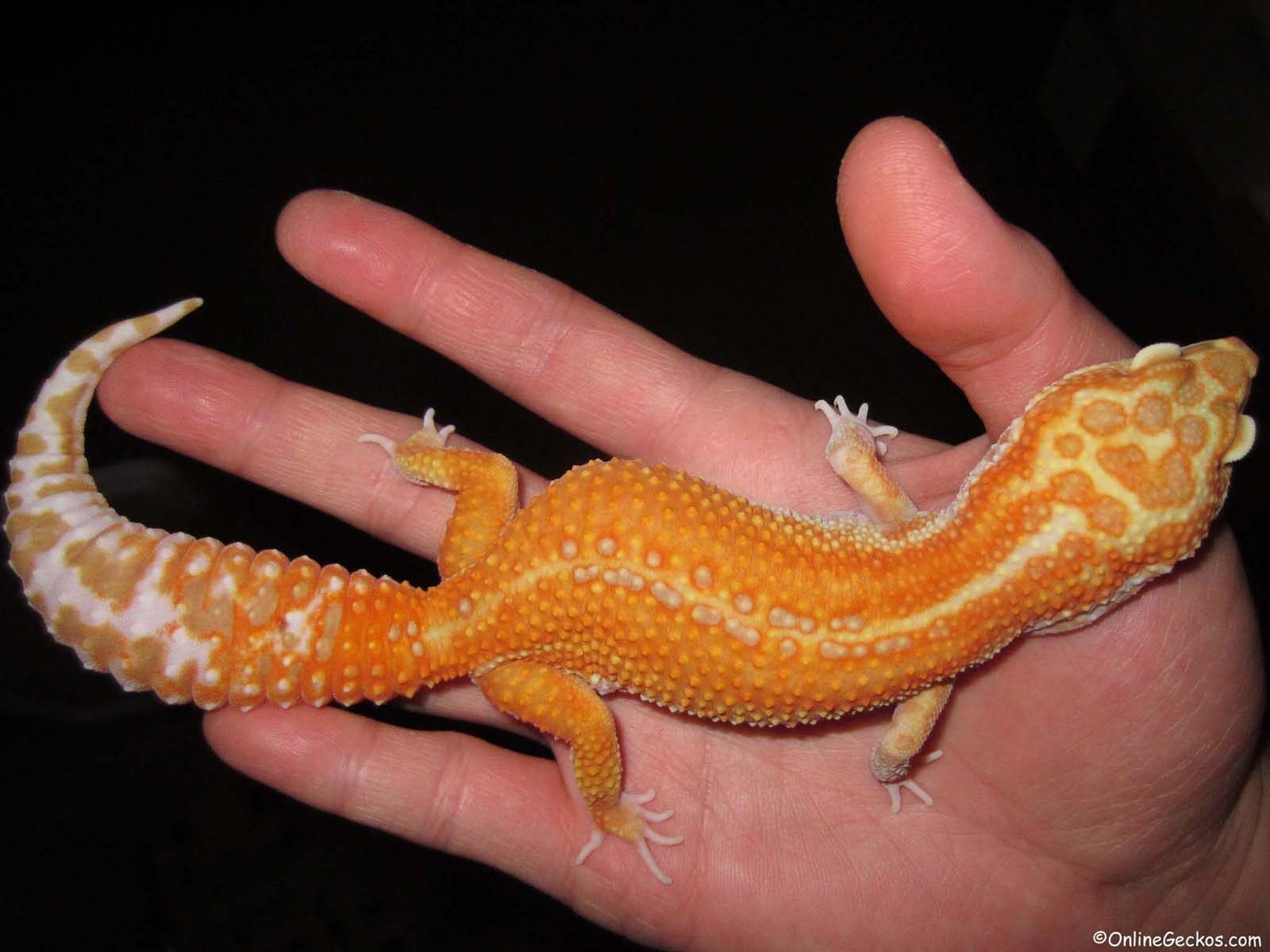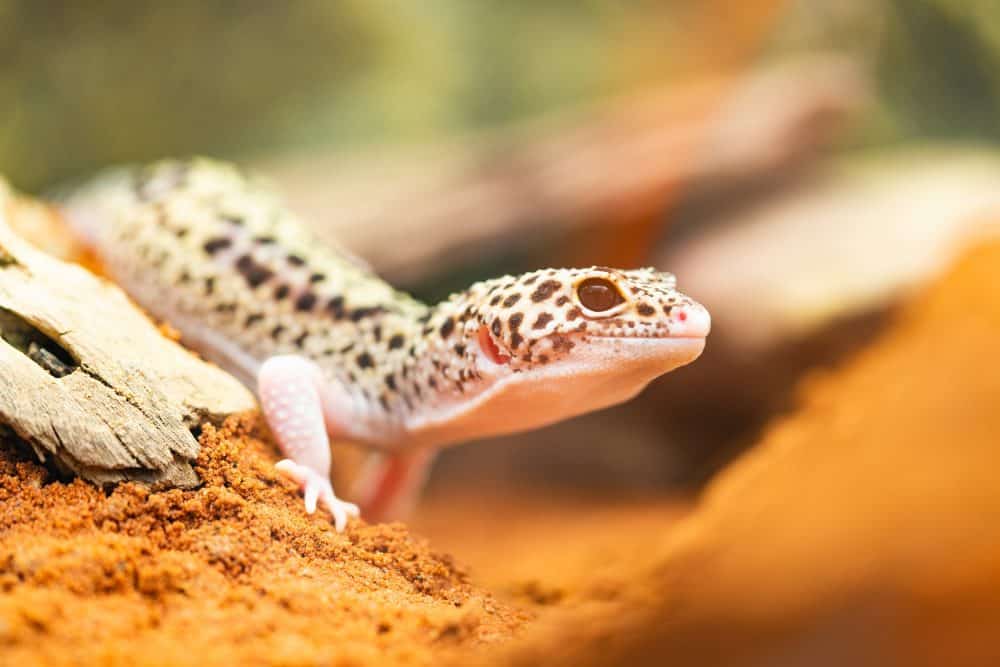Leopard Gecko Not Eating Here’S What To Do

If your leopard gecko isn’t eating, don’t panic! There are a few things you can do to encourage your little friend to start nibbling again. First, check that the temperature in their enclosure is correct.
Leopard geckos like it warm, around 85-90 degrees Fahrenheit. If it’s too cold or hot in their home, they may not be interested in food. Second, make sure you’re offering them the right kind of food.
Live insects are the best option for leopard geckos, and they should be about the same size as your gecko’s head. Lastly, consider if there might be something stressing them out. A new pet or loud noises in the house could be making them nervous and impacting their appetite.
If you’re a new leopard gecko owner, you may be concerned if your leopard gecko isn’t eating. Here’s what to do if your leopard gecko isn’t eating and some possible reasons why.First, don’t panic!
It’s not uncommon for leopard geckos to go on hunger strikes from time to time. If your leopard gecko hasn’t eaten in a few days, but is otherwise acting normal, there’s no need to worry.There are several possible reasons why your leopard gecko might not be eating.
One possibility is that the temperature in their enclosure is too low. Leopard geckos need warm temperatures (around 80-85 degrees Fahrenheit) in order to digest their food properly. Another possibility is that they’re stress or shedding.
Both of these can cause a loss of appetite in leopard geckos.If you’re concerned about your leopard gecko’s lack of appetite, try offering them live insects like crickets or mealworms. Live food tends to be more enticing than dead food, so it may help get them eating again.
You can also try gently rubbing their belly with a soft cloth; this can help stimulate their appetite as well.
Old Leopard Gecko Not Eating
If your leopard gecko isn’t eating, it could be a sign of a serious health problem. If your leopard gecko is over 10 years old and has suddenly stopped eating, it’s likely due to age-related problems. However, if your leopard gecko is younger than 10 years old and has stopped eating, there could be a number of underlying health issues.
If your leopard gecko isn’t eating, the first thing you should do is take them to the vet for a check-up. Some common health problems that can cause a loss of appetite in leopard geckos include kidney disease, liver disease, and parasites. If your vet rules out any of these health problems, they may suggest that the lack of appetite is due to stress.
There are a number of things you can do to try and reduce stress in your leopard gecko. These include providing hiding places in their enclosure, keeping the temperature and humidity levels stable, and avoiding handling them too much. You should also make sure that they have access to fresh water at all times.
If you’ve tried everything and your leopard gecko still isn’t eating, then it’s time to seek professional help from a reptile specialist or reptile veterinarian.
Leopard Gecko Not Eating Or Moving
If your leopard gecko isn’t moving or eating, it could be a sign of a serious health problem. If your gecko is lethargic, not moving much, and not interested in food, take it to the vet immediately. It could be suffering from a respiratory infection, parasites, or another health issue.
Leopard Gecko Not Eating for Months
If your leopard gecko hasn’t eaten for a few months, there’s no need to worry. While it’s certainly not ideal, a period of inactivity is not uncommon for these reptiles. In fact, leopard geckos are known to fast for long periods of time in the wild.
There are a number of reasons why your leopard gecko may have stopped eating. It could be due to stress, illness, or simply because they’re not hungry. If you’re concerned about your pet’s health, it’s always best to consult with a veterinarian.
If your leopard gecko is healthy and just taking a break from eating, there’s no need to take any action. Just make sure they have access to food and water and wait patiently for them to start eating again.
Leopard Gecko Not Eating But Very Active
If your leopard gecko isn’t eating but is still very active, there could be a few different reasons for this. Maybe your gecko isn’t used to its new surroundings and is still getting acclimated. Or, it could be that something in its environment is stressing it out.
Make sure that the tank is set up correctly with the right temperature and humidity levels, and that there aren’t any other reptiles in the tank that could be causing stress. If your leopard gecko has been in its new home for a while and you’ve ruled out environmental factors, then it’s time to take a trip to the vet to make sure there’s no underlying health issue at play.
Leopard Gecko Not Eating And Sleeping All the Time
If your leopard gecko isn’t eating and seems to be sleeping all the time, it could be a sign of illness. Some common illnesses in leopard geckos include respiratory infections, parasites, and kidney disease. If your gecko is displaying any other abnormal behaviors, such as lethargy, weight loss, or changes in appearance, take them to see a reptile vet as soon as possible.

Credit: www.terrariumquest.com
What Do I Do If My Gecko Refuses to Eat?
If your gecko refuses to eat, the first thing you should do is check their mouth and throat for any blockages. If everything looks clear, then the next step is to offer them a variety of food items to see if anything interests them. Try different textures and temperatures as well.
Some geckos are more hesitant to eat when they’re not used to their surroundings, so give them time to adjust before getting too worried. If they still don’t show any interest in food after a week or two, it’s best to take them to the vet for a check-up.
When Should I Worry About My Leopard Gecko Not Eating?
As a general rule of thumb, you should start to worry about your leopard gecko not eating when they haven’t eaten for two weeks. This is because leopard geckos are typically very good at regulating their own intake and will only go without food if they are truly not feeling well.There are a few exceptions to this rule.
If your leopard gecko is still growing, then you may want to start worrying sooner than two weeks as they will need to eat more frequently to support their growth. Similarly, if your leopard gecko has recently gone through a shed, they may also be off their food for a little while as they recover from the process.If you are worried that your leopard gecko isn’t eating enough, the best thing to do is take them to the vet so that they can check for any underlying health issues.
In most cases, however, simply offering them a variety of different foods and keeping an eye on their weight should be sufficient.
How Long Can a Leopard Gecko Go Without Eating?
Assuming you are referring to a healthy, adult leopard gecko:Leopard geckos are capable of fasting for long periods of time if necessary. In the wild, they may go several months without eating if food is scarce.
In captivity, they should be offered food every 5-7 days. If your leopard gecko refuses food for more than 2 weeks, consult a veterinarian.
How Do I Force My Leopard Gecko to Eat?
If you have a leopard gecko that isn’t eating, there are a few things you can do to try to get them back on track. First, make sure they have access to food and water at all times. If they’re not used to being fed live insects, you may need to start with smaller prey items like crickets or mealworms.
You can also try offering different types of food, like chopped-up vegetables or fruits.If your leopard gecko still isn’t interested in eating, it’s time to consult a veterinarian. They will be able to rule out any medical conditions that could be causing the lack of appetite and give you specific advice on how to proceed.
Can I Relocate My Leopard Gecko If It Is Not Eating?
When it comes to reconsidering the relocation of turtles, caution should be exercised for leopard geckos as well. If your leopard gecko is not eating, it is important to address the issue promptly. Relocating them during such times can induce stress, resulting in further appetite loss. Consult a reptile veterinarian before making any decisions to ensure your gecko’s well-being.
How To Get Your Leopard Gecko To Eat (without force!!)
Conclusion
If you have a leopard gecko that isn’t eating, there are a few things you can do to try and get them back on track. First, make sure they have access to food and water at all times. If they’re not hungry, they may not be able to find their food.
Secondly, check for any medical problems that could be causing their loss of appetite. Lastly, provide them with plenty of hiding places and areas to explore in their enclosure. By doing these things, you’ll give your leopard gecko the best chance possible of getting their appetite back.